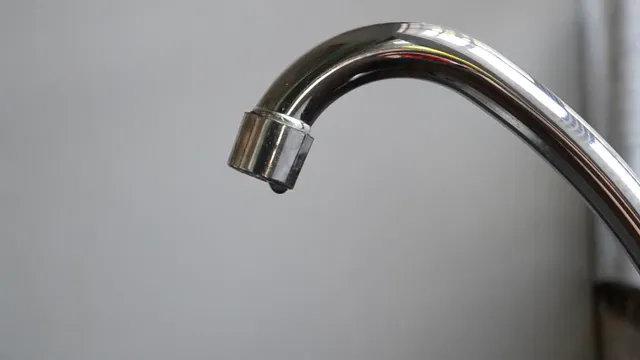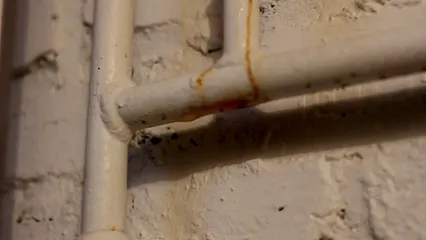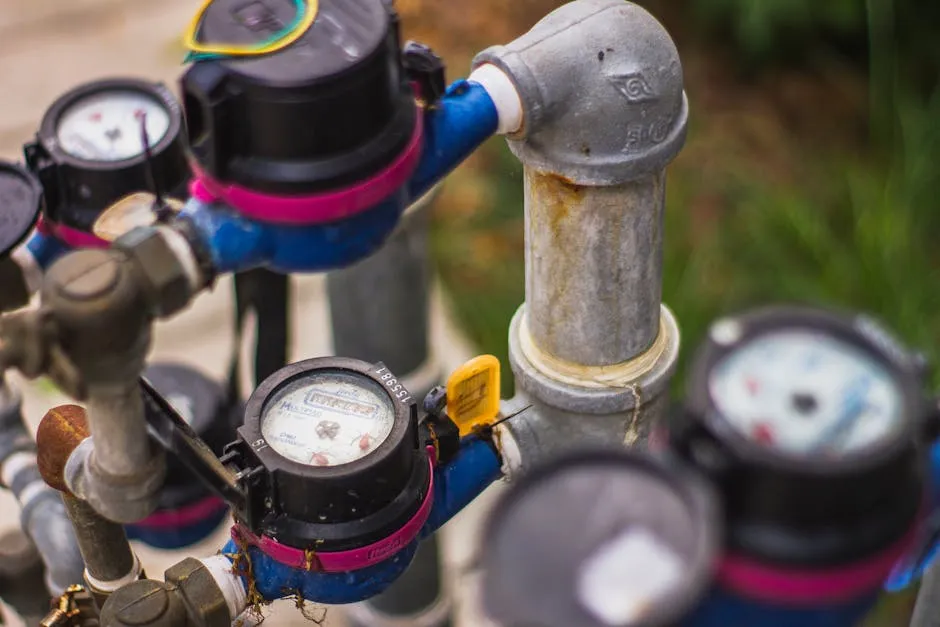
Why Is My Water Bill So High? Understanding the Causes and Solutions
Why Is My Water Bill So High? Understanding the Causes and Solutions
Introduction
Receiving an unexpectedly high water bill can be frustrating for homeowners. Many wonder what went wrong. Understanding the causes of high water costs is crucial. Once you pinpoint the issue, you can take steps to lower your bill and save money.
Summary and Overview
High water bills can result from various factors. Common culprits include leaks, increased water usage, and faulty equipment. Understanding your water consumption is vital. For instance, the average family uses over 300 gallons per day. Small habits, like long showers or frequent laundry, can add up. Addressing these issues could lead to significant savings. Solutions range from fixing leaks to monitoring your daily water activities. By being proactive, you can reduce waste and manage costs effectively.

To help with monitoring your water usage, consider investing in a Smart Water Usage Tracker. This nifty gadget can give you real-time data on your water consumption and help you identify areas where you can cut back.
Common Causes of High Water Bills
Understanding the Contributing Factors
Increased Water Usage
Did you know that an average family consumes more than 300 gallons of water daily? This number can vary based on many factors. Long showers, frequent laundry, and leaving the faucet running all contribute to higher water usage. Being mindful of these habits can help.
Consider tracking your daily water usage with a meter. This can help you identify patterns and adjust accordingly. Keep a water usage diary for a month. You may be surprised at how much water you use without realizing it. Adopting water-saving habits can significantly impact your bill. Simple changes can lead to impressive savings over time. Remember, small adjustments in your routine can make a big difference!

One way to reduce water usage is by installing a High-Efficiency Showerhead. This little device can help you enjoy a refreshing shower while using significantly less water. Who says you can’t save the planet while pampering yourself?
Leaks: The Silent Culprit
Identifying Common Leaks
Have you ever wondered if your water bill is high due to hidden leaks? It’s a common issue. Leaks can happen anywhere in your home. Toilets, faucets, and pipes are the usual suspects. Even a small leak can lead to significant water loss.
To check for leaks, follow this simple checklist:
- Toilets: Listen for running water after flushing. You can also perform a simple dye test. Add food coloring to the toilet tank. If color seeps into the bowl, there’s a leak.
- Faucets: Look for dripping faucets. A slow drip can waste over 20 gallons a day.
- Pipes: Inspect visible pipes for moisture or stains. If you suspect a leak, turn off all water sources and check your water meter. If it still moves, you likely have a leak.
According to the EPA, household leaks can waste nearly 10,000 gallons per year. Small leaks, like a dripping faucet, can add up quickly. So, it’s wise to check for potential leaks in your home today!

To help you detect these sneaky leaks, consider investing in a Leak Detection Kit. It’s like having a detective on your team, sniffing out leaks before they become costly disasters!
Hot Water Heater Issues
How It Affects Your Bill
Is your hot water heater a hidden culprit behind your high water bill? Inefficient or leaking heaters can significantly increase your water usage. On average, hot water heaters account for about 18% of your home’s energy use. If your heater is old or malfunctioning, it may work harder than necessary.
Watch for these signs that indicate your heater needs attention:
- Strange Noises: Banging or popping sounds can signal sediment buildup.
- Reduced Hot Water Supply: If you notice a lack of hot water, it may be struggling to heat.
- Leaks: Water pooling around the heater is a clear sign of trouble.
To maintain efficiency, consider scheduling regular maintenance checks. Upgrading to a more efficient model can save you money in the long run and improve your energy efficiency. Don’t let your hot water heater be a hidden drain on your wallet!

Speaking of efficiency, installing a Hot Water Heater Timer can help you manage when your heater runs, saving you energy and money!
Municipal Rate Increases
Understanding Water Rate Changes
Have you noticed a sudden spike in your water bill? Sometimes, it’s not just your usage. Local municipalities can raise water rates for various reasons, such as infrastructure repairs, increased demand, or environmental initiatives. According to Bluefield Research, average water and sewer bills have jumped about 50% over the last decade. This trend impacts your monthly expenses significantly.
To check if your area has experienced a rate change, visit your local water authority’s website. They often publish updates on rates and any upcoming changes. You can also call them directly for the most accurate information. Being informed about municipal water costs helps you understand your bill better. Don’t hesitate to reach out to your local water authority. They can provide clarity on any recent rate increases that may affect your wallet.

Faulty Water Meters
Diagnosing Meter Accuracy
Could a faulty water meter be the reason for your high bill? An inaccurate meter can lead to incorrect billing, causing you to pay more than necessary. Typically, water meters are checked and replaced every 10 to 15 years, but errors can still happen. If you suspect your meter is faulty, take immediate action.
Start by turning off all water sources in your home. Observe your meter for any movement. If it spins while no water is in use, there may be an issue. You can also compare the meter reading with a measuring tool to verify accuracy.
If discrepancies arise, contact your water utility company. Request a thorough inspection of your meter. They can determine if it needs repair or replacement, often at no cost to you. Don’t let an inaccurate meter drain your finances. Taking swift action can save you money in the long run.

Seasonal Changes in Water Usage
How Seasons Impact Bills
Have you noticed your water bill spike during the summer? It’s a common trend. Water usage typically increases significantly in warmer months. Activities like watering lawns and filling pools can lead to higher consumption. In fact, households use about 30% more water in summer than in winter.
To manage your water usage during peak seasons, consider these strategies:
- Water early or late: Water your garden in the early morning or late evening to reduce evaporation.
- Use mulch: Applying mulch around plants can help retain moisture.
- Limit lawn watering: Aim to water less frequently but deeply, encouraging deeper root growth.
By adopting these practices, you can keep your summer water bills in check. Remember, every drop counts, and small changes lead to savings!

For those summer days when you want to enjoy your garden without the hassle of constant watering, consider a Garden Hose Timer. It automates your watering schedule so you can sit back and relax while your plants thrive!
Hidden Water Usage Factors
Other Causes of High Bills
Sometimes, high water bills stem from less obvious sources. Have you had guests stay over recently? Increased household activity can lead to higher consumption. Renovations or new appliances can also contribute. For example, running a new washing machine or dishwasher might use more water than older models.
To monitor these changes, keep an eye on your water meter. Check it regularly to spot any unusual spikes. Additionally, assess your household routines. Are you doing more laundry or watering the lawn more frequently?
Reviewing these factors can help identify potential savings. Becoming aware of your habits is the first step towards reducing those high water bills!

If you’re looking to upgrade your appliances, consider a Energy-Efficient Washing Machine. It not only saves water but also reduces your energy bill, making it a win-win!
Conclusion
In summary, understanding why your water bill is high is essential. Common reasons include leaks, increased usage, and faulty meters. Identifying these issues allows you to take action, potentially saving money. Regularly checking for leaks, monitoring usage, and upgrading appliances can help reduce costs.
Being proactive in your water management can lead to efficiency and lower bills. We encourage you to investigate your water habits and make necessary adjustments. Every small change can have a significant impact. Together, let’s work towards smarter water use and savings!
FAQs
What are the most common reasons for a sudden spike in my water bill?
Common causes include hidden leaks, increased usage, or seasonal changes. A faulty meter may also contribute.
How can I detect leaks in my home?
Simple methods include performing a dye test in your toilet or checking for dripping faucets. Regularly inspect pipes for moisture too.
What should I do if I suspect my water meter is faulty?
First, check for movement when no water is being used. If you notice any, contact your water utility for an inspection.
Can seasonal changes really affect my water bill?
Yes! During summer, activities like watering gardens and filling pools often increase water usage significantly.
What are some simple ways to reduce my water bill?
Adopt water-saving habits like shorter showers, fixing leaks, and using efficient appliances. These changes can help lower your consumption.
If you’re passionate about saving water and the environment, you might want to check out a Water Conservation Book. It’s packed with tips and tricks to help you become a water-saving champion!
Please let us know what you think about our content by leaving a comment down below!
Thank you for reading till here 🙂
All images from Pexels




